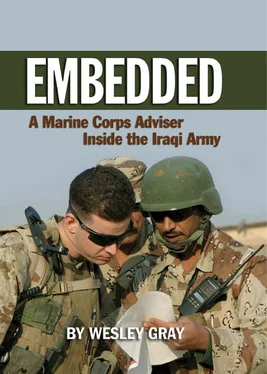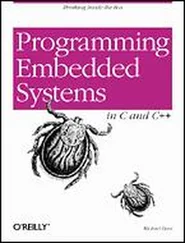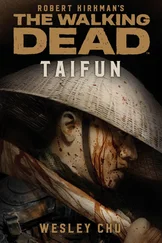Iraqis Speak on the Nation, Region, and Military
September–October 2006
“Mark,” I said to our Kurdish terp, “I’d like to hear what your opinion is of the American invasion. When the plan was written up, we would free the country’s people from Saddam’s oppressive grip and these people would then rebuild the society and become the beacon of democracy in the Middle East. What went wrong?” Mark smiled and playfully punched me in the shoulder. “Jamal, I never thought an American could admit that something may have gone wrong in the Iraq invasion. Are you sure you are not an Iranian spy?” I said, “Mark, shut up. Get on with your story.” He said, “Jamal, I think America screwed up in four categories when they came in during the original invasion.”
Mark lectured me on the situation in Iraq before the U.S. invasion. “The majority of people in Iraq were excited the Americans were coming, particularly the Kurdish, Shia, and highly educated,” he said. “Despite the misinformed Western vision of a Saddam-controlled media feeding Iraqi people propaganda that vilified the United States, many Iraqis had their eyes wide open to the Kuwaiti and Saudi Arabian media outlets through illegal satellite dishes. This opened our eyes to the good things Americans could bring to Iraq. Basically, the stage was set for a successful American campaign.”
Mark paused before going on. “Listen, Jamal, it was no secret Saddam was in a desperate fight for the population’s support. His groveling for support actually made the Iraqis feel more and more that what America had to offer was better, even if we weren’t sure what this offering would be. It got so pathetic that Saddam ordered banks to give everyone a hundred dollars if they would support him in the war against America. They would never admit it in public, but my guess is the majority of Iraqis wanted the Americans to invade.”
“Mark,” I asked, “if people were excited about us invading, why am I here three years later dodging IEDs?” He replied, “Well, everything went down the crapper because of four key mistakes: opening the borders, disbanding the army and police, leaving the military bases open and unguarded, and leaving the banks unsecured.” In his professional manner Mark elaborated:
When the Americans opened the borders, or at least left them unsecured, it let Al Qaeda fighters, Syrians, and Iranians come into the region to create chaos. This was the first sign to the Iraqi people that there was a weakness in the American’s ability to secure the situation. Then you guys had the brain-dead idea of disbanding the Iraqi army and Iraqi police. The Iraqis would have accepted this if the Americans had maintained the security these services provided, but instead you guys fired the security forces and at the same time let the thieves and bandits run rampant. This was strike two against America. Next you left the Iraqi army camps unguarded after the invasion. This allowed everyone in the country to arm and prepare for guerrilla warfare. Hell, with my own eyes I saw grandmothers carrying RPGs out of the camps so they could sell them for money. It was a free-for-all. If the United States put in a simple effort to secure these facilities the number of weapons and ammunition available to the subsequent insurgency movement would have been erased. Finally, strike four for America was leaving the banks unsecured. This was the straw that broke the camel’s back, Jamal. Iraq went from a semimodern banking system to the stone age after the invasion. Thieves were robbing banks without consequence and the American soldiers simply watched it happen. All the money that was once held in the hands of decent Iraqis transferred into the paws of the nefarious Iraqis. You guys fucked us, plain and simple.
Mark’s comments tore at my heart. If we had brought in a much larger invasion force and planned more appropriately for the fall of Saddam, Iraq may have actually ended up as a success story. Tragically, any good will Iraqis had toward America all but vanished.
In the two weeks after 2/3 took over the area from 3/3, they suffered twenty-two wounded and two Marines killed. Before 2/3 arrived, 3/3 had experienced numerous combat casualties. The Triad was nothing short of a bloodbath for the Marines. I decided to get the Iraqi perspective on why 3/3 and now 2/3 were getting waxed by the insurgents.
I grabbed Moody, the most experienced terp we had. Moody had been with our battalion in Haditha since it had been formed almost two years earlier, and he had seen four different Marine units rotate in and out of the Triad. “Moody,” I asked, “why have the past two Marine battalions been crushed by the insurgents?” Moody responded, “Jamal, the problem with Marines is that you do not understand Iraqi people.” He hesitated. “Well, actually, the only Marine I have seen that really understood Iraqi people was Lt. Col. Jeffrey Chessani, the 3/1 commander. Do you know what happened to him? The Marines fired him for the ‘Haditha Massacre.’”
Moody continued his praise for Chessani. “Jamal, the guy was a genius. You know the entire time his battalion was here there were only two Marines killed? He was the only Marine commander who would come to the Iraqi camp and ask for advice on a regular basis from the jundi and the terps.” I retorted, “Are you kidding me? He’s the only Marine commander that sought out Iraqi advice on how to deal with Iraqi problems?” Moody replied, “Jamal, I am dead serious.” I said, “Well, what exactly did he do that was so different than what we are doing now? We don’t want to create another Haditha Massacre. That isn’t an option at this point.”
Moody said, “Jamal, the so-called Haditha Massacre was the best thing that ever happened to the Marines.” He sat back and smiled. “Until the Marines realize that violence is how politics and policy are solved in Iraq, they will never be successful. I guarantee when the Americans leave us alone, the solutions to our country’s problems will be solved by violence. That is just how it is and how it always will be. We are different.”
Moody continued with his insightful lecture. “What Chessani finally realized after speaking with Iraqis, myself included, was that the people in this region need to feel pain in order to respond, because the insurgents put pain on them everyday. Unless we reciprocate we are not going to convince anybody to do anything.” I fired back, “So you suggest we just go grab civilians and start torturing them or something?”
“No, the key is to implement policies that put the pressure on the tribal sheiks to act,” Moody responded. “The sheiks control the populations and do what is in their best interest. The trick is to shape the decisions they must face. For example, we suggested to Chessani that he button down the cities and eliminate vehicle traffic, implement curfews, and shut down the power. The sheikhs were forced to come out of their holes and negotiate with the Marines. The Marines have the power to put the pain on the people without resorting to the violence the insurgents use. Chessani knew this and was highly successful in protecting his Marines.”
Playing the devil’s advocate I responded, “Well, if we implement those policies then we will continue to anger the people and they will just want to side with the insurgents.” Moody burst out with laughter. “Jamal, you and I both know the Americans will never, never, never win the hearts and minds of Sunni Arabs in Al Anbar Province; however, you can win their respect for your authority, power, and money. This is how you will get them to do what you want. They are never going to like you, but they may be willing to work with you if it is in their interest.”
Читать дальше












